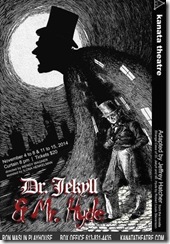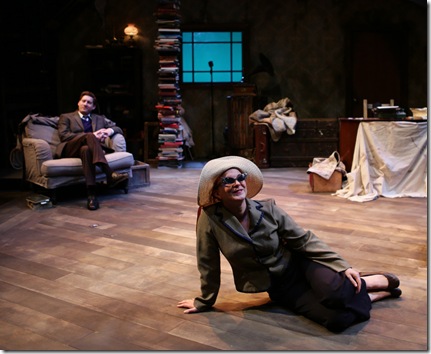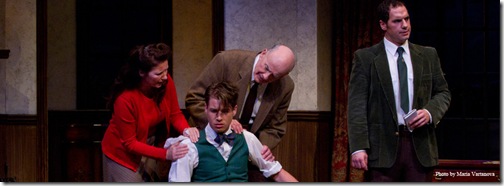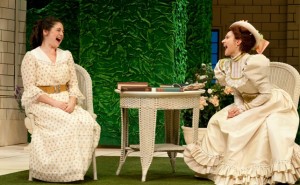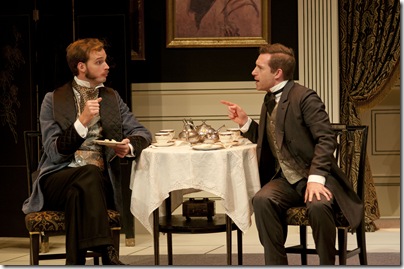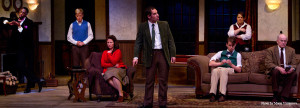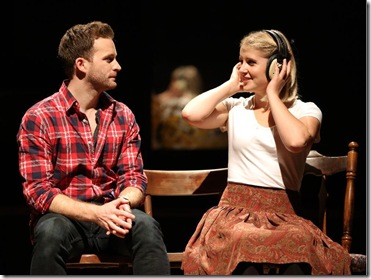The Strange Case of Doctor Jekyll and Mr. Hyde: An Evening of Potent Imagery and Fine Ensemble Acting.
Poster for Kanata Theatre
American playwright Jeffrey Hatcher has created an astonishing new stage version of Robert Louis Stevenson’s The Strange Case Of Doctor Jekyll And Mr. Hyde. It astonishes because of the way it refines and deepens Stevenson’s preoccupation with the idea of a dual nature lurking within every human being, also because of its audacity in offering its own spin on what happens when the respected Henry Jekyll’s lab experiments turn him into the homicidal, cane-wielding Mr. Hyde.
The original novel remains a creepy read. And Kanata Theatre’s sterling production of Hatcher’s play ensures a similar frisson. Director Wendy Wagner, assisted here by Ilona Henkelman, shrouds this piece in atmosphere. Skeletal images lurk behind the fog and gloom, and even the play’s brightly lit moments seem imprisoned in an impenetrable darkness. The existence of creatures and things that go bump in the night seems entirely plausible.
So yes, this is a mood piece. But at Kanata it also moves with a bracing energy and offers a bouquet of fine ensemble acting.
